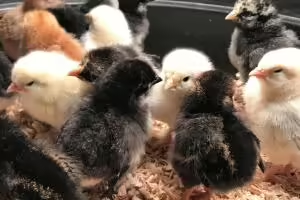PEKIN, Ill. - Embryology in the Classroom has been a long standing part of University of Illinois Extension’s 4-H program and it continues to grow in classroom participation across Tazewell County. From 2010 to 2019, the number of classrooms participating in the program quadrupled from 8 to 32 classrooms. Approximately 5,000 youth were impacted.
In 2020, 43 classrooms were scheduled to participate in two separate sessions. In the early spring session, eight of the fourteen classrooms were first-time participants, and four of those eight classrooms pursued the program per the recommendation of others. This year’s late spring session was transitioned to a virtual format due to schools transitioning to e-learning.
“Teachers keep coming back and are willingly to promote this program with their colleagues. Even with our marketing, the greatest advocates and promoters of Embryology in the Classroom are the personal testimonies,” Katharine Girone, Tazewell 4-H program coordinator stated.
As new classrooms and schools continue to join the program, almost 50 percent of teachers participating since 2016 have returned to the program for at least a second time. Twenty-seven percent have taught Embryology three or more times.
Kathy Schlack, a third grade teacher at St. Patrick Catholic School in Washington, has been teaching Embryology to her students for the past 21 years. When she began teaching Embryology to her students, she saw it as a way to bring the farm into her classroom of city youth.
“I love this program and how it lets the city kids [better] understand rural life! It also teaches them the concept of life and lifecycles as a whole,” Kathy shared. “I keep coming back to share that with my next batch of students.”
While participating classrooms come from a mix of school settings (public, private, and homeschool), all the youth are introduced to the 4-H program through the lifecycle of chickens. Upon completing an introductory training, teachers are provided with an incubator, automatic egg turner, fertilized chicken eggs, curriculum materials for their classrooms, and technical support. Over the next three weeks, teachers and students learn through observation and hands-on incubation and embryonic development projects.
Embryology in the Classroom has been able to provide materials to more classrooms by acquiring new incubators and turners in the past few years. A single program session has the potential to impact at least 20 classrooms. In order to provide this opportunity to as many youth as possible, Tazewell hosts two sessions annually and also supports educators who own their own equipment. Planning for more growth and outreach has already begun for the 2021 sessions.
To connect with University of Illinois Extension staff or get involved in upcoming programs visit the website at extension.illinois.edu/fmpt.
Source - Katharine Girone, Tazewell County 4-H Program Coordinator
